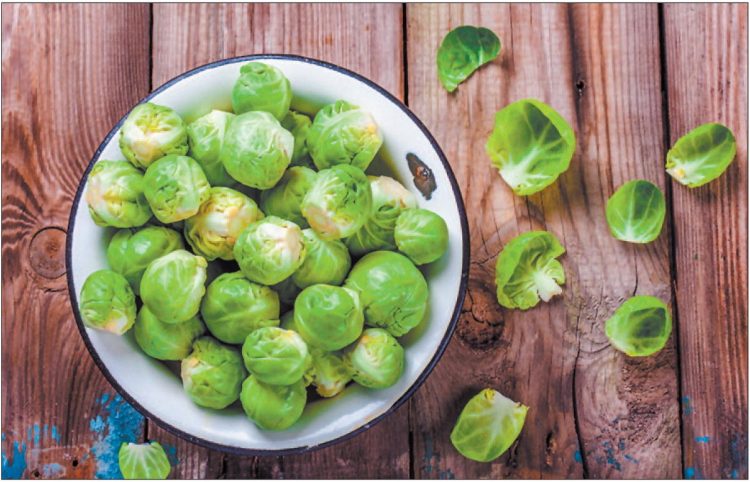Brussels Sprouts Shed Their Bad Reputation


Long before Brussels sprouts became a trendy vegetable, my family, especially my daughter Deanna, were huge fans. My mother was raised on a farm and loved to grow all types of green vegetables. She was especially skilled with properly preparing Brussels sprouts and other typically stinky and slimy vegetables — I’m talking about you, cabbage and okra! While Brussels sprouts have only recently become popular in America, sprouts have been a culinary mainstay in the southern Netherlands and Northern Europe since the 1600s. They may have been grown in Belgium as early as 1200, and are named for Brussels, its capital. These tiny members of the cabbage and mustard family also have cancerfighting phytochemicals, are high in vitamin C and are a reliable source of folate, vitamin A and potassium. Since Brussels sprouts are so good for you, why do so many people despise them?
In a web poll taken several years ago, more than 78,000 adults weighed in on the foods they hate. Brussels sprouts finished No. 8 on the list of most hated foods. The comments section overflowed with horror stories about being forced to eat the vegetable as a child.
One thing I noticed about the readers’ comments was that the Brussels sprouts they were served were muddy colored, overcooked and smelled bad. When Brussels sprouts are carefully selected, stored and cooked properly, they have a bright color, a crisp texture and a delicious flavor. When selecting the vegetable, look for small, young, vibrant green, tightly compacted sprouts.
Brussels sprouts are delicious boiled or steamed until tender, but still slightly crisp or roasted to bring out their natural sugars. Use sprouts that are all about the same size to ensure they will cook quickly and evenly. As a rule, Brussels sprouts cook in about 6 to 7 minutes. Be careful not to overcook Brussels sprouts because they will release sinigrin, a natural gas with a sulfur-like smell.
This recipe for Hashed Brussels Sprouts is flavorful and delicious. The quick cooking time and the addition of the garlic, onion and mustard complement the sprouts and showcase its flavors in a unique way. Try it, and you’re sure to become a Brussels sprouts lover, too!
HASHED BRUSSELS SPROUTS 1 tablespoon freshly squeezed lemon juice, plus 1 tablespoon grated lemon zest 1 pound Brussels sprouts 1 tablespoon olive oil 2 tablespoons butter 1/2 medium purple onion, minced 1 garlic clove, minced 1 tablespoon Italian seasoning 1 teaspoon salt 1 teaspoon pepper 2 tablespoons vegetable broth or low-sodium chicken broth 1 teaspoon Dijon mustard 1/2 teaspoon honey or sugar 1. Using a large bowl, pour in the lemon juice. Cut bottoms off the sprouts, and discard. Halve sprouts lengthwise. Thinly slice sprouts, cutting around and discarding the firm core. Immediately toss sprout slices with lemon juice to separate leaves and retain color.
2. Heat oil and butter over high heat in a skillet large enough to hold all the sprouts. When oil mixture is hot, but not smoking, add the sprouts, onion, garlic, Italian seasoning, and salt and pepper. Cook until sprouts begin to wilt, but leaves are still green and crisp, about 3 to 4 minutes. Some of the leaves might brown slightly.
3. Move the sprouts to one side of the pan and mix broth, mustard and honey or sugar together in the pan. Combine mixture with the sprouts and cook, stirring, 2 minutes more. Turn off heat, and stir in lemon zest, reserving a little to sprinkle on top of the dish. Transfer to serving bowl, sprinkle with remaining zest and serve. Serves 4.
Angela Shelf Medearis is an award-winning children’s author, culinary historian, and the author of seven cookbooks. Please join The Kitchen Diva in supporting Mattress Firms’ efforts to assist foster children through the Ticket to Dream Foundation to make a positive impact on the lives of hundreds of thousands of foster children in need. They believe not everyone can be a foster parent, but anyone can help a foster child. (www. tickettodream.org) (c) 2020 King Features Synd., Inc., and Angela Shelf Medearis









